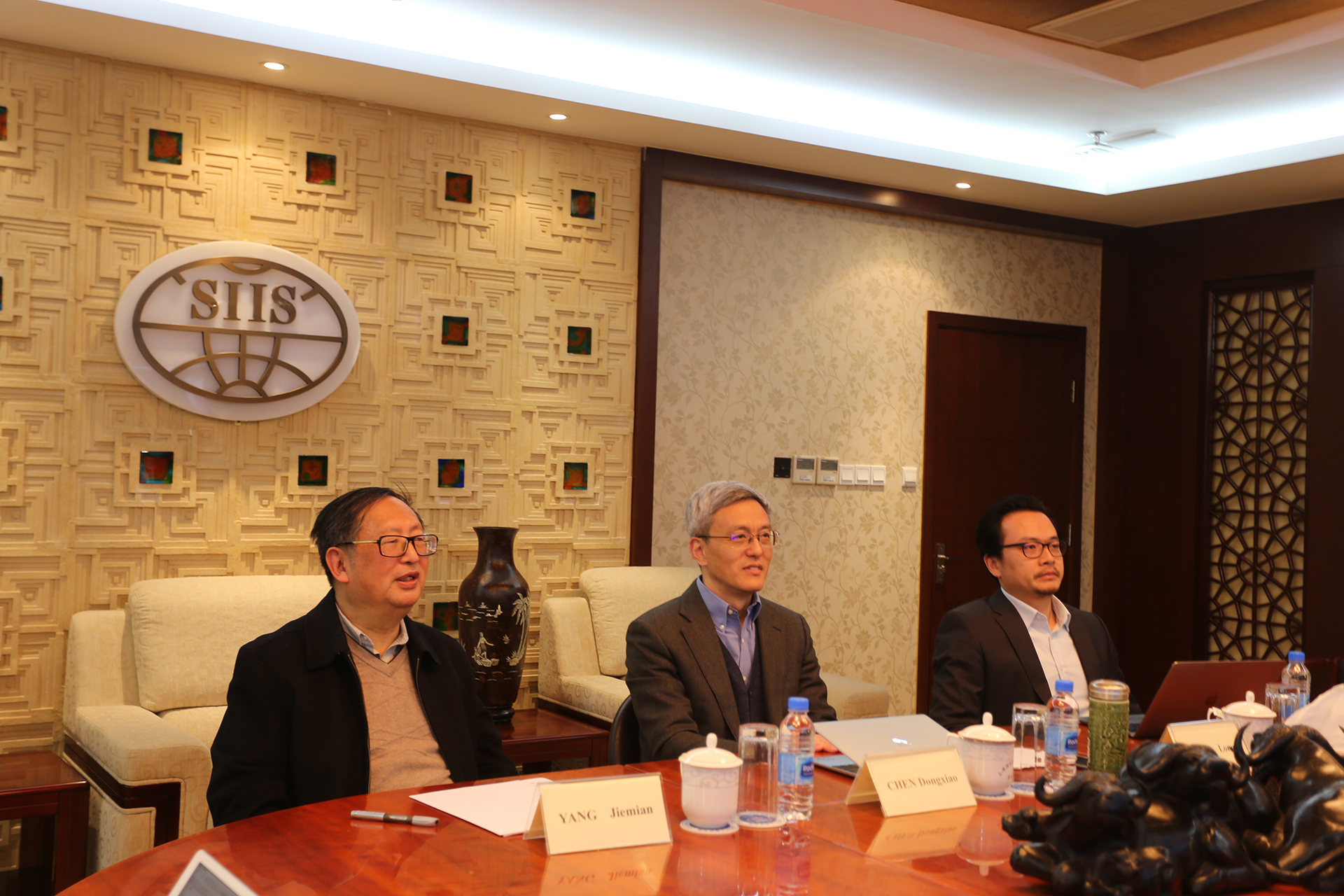2020年4月24日,上海国际问题研究院学术委员会主任杨洁勉主持召开“后疫情时期国际关系系列研讨会之三”视频研讨会,本次会议的主题是“新冠肺炎疫情和中俄美关系互动”。中方与会者有:院长陈东晓、俄罗斯中亚研究中心副研究员赵隆。俄方与会者有:俄罗斯国立高等经济研究大学教授亚历山大·卢金、《全球事务中的俄罗斯》杂志主编费多尔·卢科亚诺夫。双方与会者从疫情中和疫情后的视角分析中俄美三边关系,以及对当前和今后全球秩序的冲击和影响。


附杨洁勉主任发言稿
Jiemian YANG
The Covid-19 pandemic is exerting huge impacts to the world and hitting China, Russia and the US in a way unprecedented since the end of World War Two.
China managed to succeed in containing the virus in the first round of fighting the Pandemic but is now confronting with four major challenges at the second round. (1) China has to continue the fight especially against the imported cases. (2) China needs to shift from virus-combat only to a dichotomy of virus-combat and economic recovery. (3) China must work with the international community to maintain or re-build the chains of production, supply, distribution and value. (4) China has to meet the strategic and diplomatic pressure from the United States at its presidential election time.
The United States did not do a good job during the first round owing to its over-self-confidence, delay in timely and effective reaction, and excessive-consideration on election. On the one hand, the United States is still at a stage of containing the rapid nation-wide infection. The situation could be worse before it turns for better. Furthermore, the American capacities in containing the virus and converting to related productions should never be underestimated. On the other hand, the US and the world must be fully aware that a rash decision to re-open its economy will lead to catastrophic consequences.
If China is at the end of the first round and the US in the middle, then Russia is just at the beginning of the first round. According to some medical estimation, the peak would come to Russia in June or July, which means Russia has to prepare for the worst to come. Virus is not coming alone, but accompanied such difficulties as oil price plummeting and external strategic pressure.
The current Pandemic is further complicating the trilateral interaction in the many areas. In political area, the three countries' efforts to vindicate their own systems, which politicize the public health task. In strategic area, it is intensifying the contradictions between the strategic competitors and strategic partnership. In security area, it is adding non-traditional security factor to the overall security interaction. In economic area, it is affecting the three regional economic integrations of the Belt & Road Initiative, Eurasian Economic Union and United States-Mexico-Canada Agreement (USMCA), and it also driving the three countries' economic policies conflicting each other in energy and finance sectors.
3. Are China, Russia and the US revisionist powers or status quo powers of the current world order?
The current complication of the trilateral relations has great impacts on the world order. At the end of WWII, the United States and Soviet Union established the world order, some of which survived the post-war years and some of which need for re-making. China started to participate this world order in the early 1970s. However, in some Chinese scholars' terms, the status quo power of the United States has become the revisionist power whereas China has become a status quo power by self-claiming itself as a participant, beneficiary, defender and reformer of the current world order. To certain extent, Russia's position is similar to China's. But the United States is very different. It does not shoulder the responsibility of a world leader nor allow the others to succeed. The Trump administration's attitudes toward the WHO is a case in point.
At this stage all the three countries only have general principles but no specific plans and designs for the new world order. On the one hand, China and Russia call for a world order reflecting the reality and trends of multi-polar world based on multilateralism and equality. However, China attaches great importance to economic, scientific and technological orders. Russia emphasizes on security and military order. On the other hand, the United States wants a world order in his leading but bears as few obligations and responsibilities as possible.
The rise and fall of the major powers takes long time and the establishment of a new world order depends on many conditions. The current Covid-19 pandemic is only one of the many rounds of reconfiguration of powers in the world today. However, the country that goes along with the trends of peace, development, win-win cooperation has better chance than the one that clings to the outdated hegemony and jungle law. Anyway, the three countries should start to talk these big and future pictures. As the three governments are now obviously not in a position to work on this subject, the scholars and experts should play their role and communicate on second tracks.
